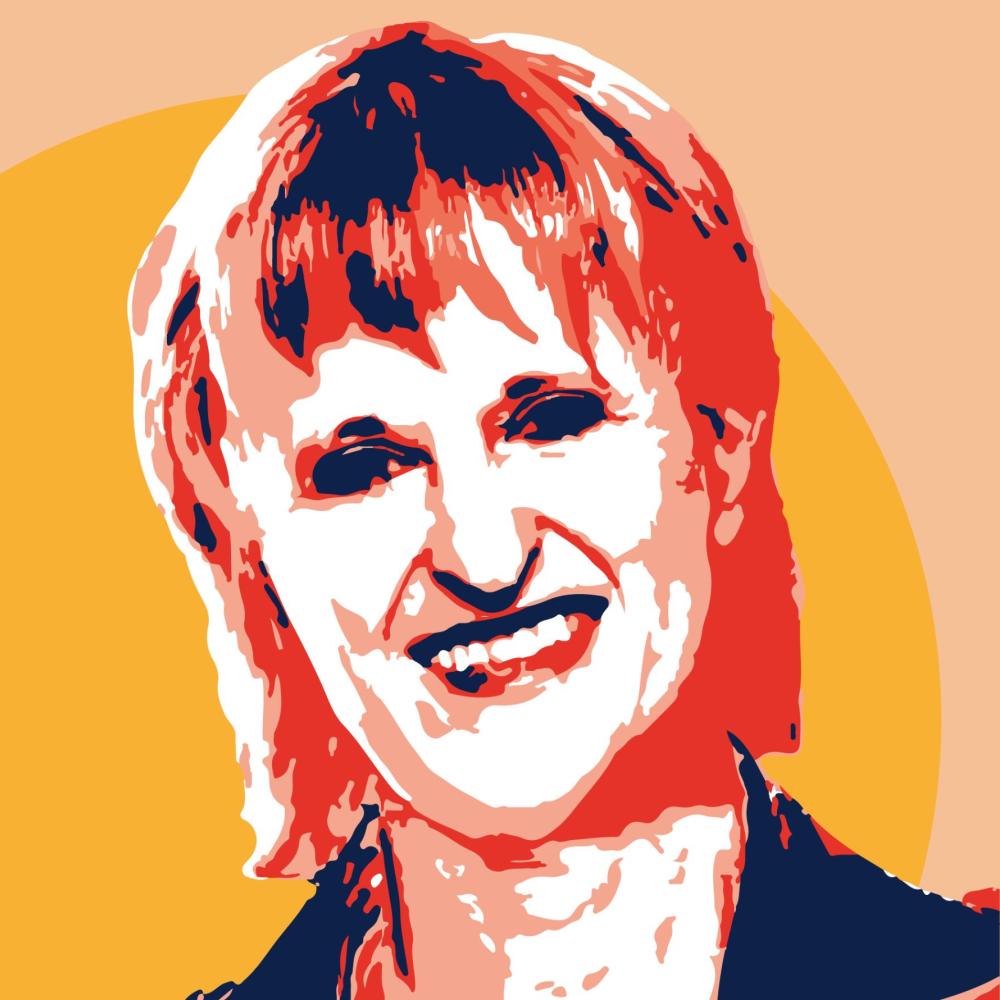

Chris Van Den WYNGAERT (°1952)
Profession: Professor, judge, and author
Nationality: Belgian
Why an honorary doctorate?
In 2009 Chris Van den Wyngaert receives an honorary doctorate from VUB.
Criminal law
Her efforts for the development of national and international criminal (procedural) law are of the highest calibre. She is a judge, an academic, and also a human being. Her superlative expertise and honest approach inspires and motivates students, teachers, and society. Her urge for justice translates into constructive actions with an ever-responsible view of society. Existentially, VUB is on the same track.
Law is not about gratuitous condemnation. Nor about short-sighted thinking and punishment. At the foot of every process lies a story that deserves to be read. Perpetrator and victim stand in a context that requires objective insight. Those who are sweet sometimes get a treat, those who are naughty, not always a scolding. A court should not win points with its number of convictions. Honour and conscience must speak loudest where freedom and judgement, truth and lies are decided. Trust in the law should be and remain at the highest echelon.
"The quality of a court shouldn't be measured in the number of convictions, but in whether or not the trials are fair."
About her career
From auditoriums to courts and back again
She started as a law student, worked her way up to practice, and later enriched auditoriums with her own works.
Honorary doctorates: 4 honorary doctorates in 4 different countries
Humanist: Human Rights Prize, Ambassador for Peace and Medal of Honour of the Flemish Community.
Judge and soldier for justice
Chris Van den Wyngaert is still an adolescent when, in the 1960s, she tours with famous musicians Ferre Grignard and Wannes Van de Velde - she as guitarist and singer - to denounce the Vietnam War with protest songs.
She wants to combine her music with studying and has been told that law school is the right course for her. The first three years, she is bored to death. But after taking a criminal law course, she is sold.
After her years at university, she commits herself to a doctorate and obtains it with great distinction. Her thesis is awarded the Henri Rolin Prize in 1980. Every five years, it honours a work that contributes to the study of international law. Van den Wyngaert remains active at VUB as NFWO researcher (National Fund for Scientific Research).
1985. Van den Wyngaert teaches criminal (procedural) law at Antwerp University, where she inspires her students and guides PhD students as a professor. Her research work translates into an impressive list of national and international publications on criminal (procedural) law, comparative criminal law and international criminal law.
But her expertise is not limited to the academic world. She is vice-president of the Franchimont Commission, which stands for the modernisation of criminal procedural law and advocates more rights for victims and offenders. It is now 1993. Van den Wyngaert helps finalise the Genocide Act, which introduces universal jurisdiction for Belgian courts for serious violations of international law.
Van den Wyngaert also seeks out international educational territories. She is a visiting fellow at Cambridge University from '94 to '97 and is warmly welcomed as a visiting professor at the University of Stellenbosch in South Africa.
There is a human red thread running through Chris Van den Wyngaert's career. She combines commitment and expertise in the fields of criminal law, international law, and human rights. She acts as reporter at conferences in Buenos Aires (1994) and Budapest (1999) on human rights and organised crime. She emerges as an expert for the European Union in various criminal justice projects.
When the new millennium arrives, Van den Wyngaert becomes an ad hoc judge at the International Court of Justice and remains so until 2002. Between 2003 and 2009, she is given the responsibility of judge at the International Criminal Tribunal for the former Yugoslavia. She is present at crucial debates that must decide - often for the first time - on some extremely important elements of modern international criminal law.
In 2009, Van den Wyngaert is appointed judge at the International Criminal Court for a mandate of nine years. She then becomes a judge at the Kosovo Tribunal.
Her handbook 'Strafrecht en strafprocesrecht in hoofdlijnen' is the standard work for students and legal practitioners.
What is an honorary doctorate?
VUB has awarded honorary doctorates every year since 1978 to personalities from the most diverse backgrounds who have made a remarkable contribution to their field and to society. From this solemn moment of recognition, they bear the honorary title of Doctor Honoris Causa of VUB.